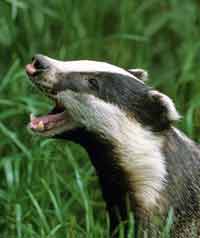Badger culling can control TB, says research

Badger culling has a long-term impact on the incidence of bovine tuberculosis in cattle, according to new research findings.
The research has revealed that a decline in herd incidences of more than 40% was achieved in the Randomised Badger Culling Trials (RBCT) in England and continued four years after culling had ceased.
That revelation appeared to contradict analysis of the trials which was published earlier this year by a research group from Imperial College London and the Zoological Society of London.
The group had claimed that the benefits to cattle herds from badger culls had gradually reduced in the 36 months post-culling and so it concluded that badger removal was not a cost-effective method of TB control.
But an update on data from the trial, released by one of the research group, has shown that the positive effects of culling in the had “reappeared” 37-42 months after culling in the trial area had ceased.
The news has been seen as a boost for the Welsh Assembly Government’s pilot badger cull which is due to begin in the coming days.
Wales’ chief veterinary officer Christianne Glossop said the evidence demonstrated that taking badgers out of a TB-infected area could substantially reduce the disease level in cattle.
“We are taking a new approach to eradicating the disease, combining cattle controls and biosecurity advice alongside a proactive cull of badgers. It is not a replication of the RBCT,” said Dr Glossop.
“It is an approach similar to that which is being successfully implemented in New Zealand which is now close to eradicating bovine TB.” she added.
